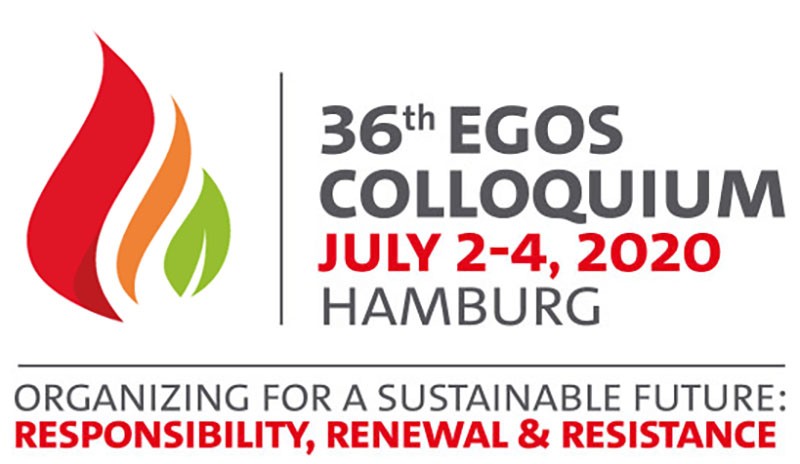Sub-Plenary 2-1
Doing What Matters: Making Academic Lives More Meaningful
Joel Bothello, Concordia University, Canada
Helen Etchanchu, Montpellier Business School, France
Thomas Roulet, University of Cambridge, United Kingdom
Panelists:
Giuseppe Delmestri, WU Vienna, Austria
Marie-Laure Salles-Djelic, SciencesPo, France
Garima Sharma, University of New Mexico, USA
This sub-plenary will explore some of the narratives and counter-narratives that dominate our post-truth era. It will critically
address the political nature of narratives and counter-narratives in a post-truth age and assesses the role of intellectuals
in producing, critiquing and contesting them. It will pay special attention to those narratives and stories that assume currency
even when at odds with factual evidence and expert opinion. The sub-plenary will investigate the role of scientists, researchers,
and intellectuals in exposing lies and frauds, in critiquing, contesting and qualifying popular theories and arguments and
in giving voice but also scrutinizing unheard and untested stories.
The format of this sub-plenary includes a 10-minute introduction by the organizer, followed by 10-minute presentations by
each of the contributors. The rest of the session will be devoted to discussion of issues and questions raised by the audience.
Academia is in a state of flux. Our profession has changed considerably in recent decades as a consequence of external and
internal pressures: pressures to publish, to perform in the classroom, to be impactful. As a result, up to a quarter of university
professors declare they are on the verge of burn-out. Depression and feelings of impostorhood are common and difficult to
overcome. In this context, it is easy to lose track of why we decided to engage in an academic career in the first place.
How can we regain and preserve meaning in our academic lives? This conversation aims to highlight our various roles as (management)
academics and how they relate to different stakeholders: society, practitioners, students, colleagues, families and friends.
We seek to expose how those relationships bring sense to our profession and nurture us, rather than exhaust us. We intend
to provide a platform to share the inspiration we get from some of the natural constituents of academics and raise important
questions on defining productivity, meaning and success in academia.
We begin the conversation by reviewing four essential stakeholders that contribute to making academic lives meaningful: society,
practitioners, students and our families/friends. Each speaker will discuss how they make their academic lives meaningful
vis-à-vis two key stakeholders, building on concrete examples based on their experience. Two of the organizers will help the
conversation move on from one stakeholder to the other and wrap up the conversation before opening for a 40 minutes Q&A with
the audience. We will enable a live discussion and capture real-time audience input.
Joel Bothello is an Assistant Professor in Management and Research Chair in Resilience and Institutions at Concordia University, Montreal,
Canada. He works at the intersection of organization theory and sustainability. His most recent work is in Cape Town, South
Africa, where he is partnering with SLF (Sustainable Livelihoods Foundation) to create strategies for poverty alleviation
and development. He is a co-founding member of “Organization Scientists for Future” – OS4future.
Helen Etchanchu is an Assistant Professor at Montpellier Business School (MBS), France. Her research focuses on the role of business in society
and the governance of social and environmental issues. She currently explores struggles over meaning between business, political
and civil society actors around grand challenges such as climate change, inequality, and health. Helen is Head of Research
and Pedagogy of the sustainability lab at MBS and co-founder of OS4future. She had two children during her PhD and is running for municipal elections, and she will discuss parenthood in academia
and share her experience with community policy engagement.
Thomas Roulet is a Senior Lecturer in Organisation Theory at the Cambridge Judge Business School, United Kingdom, and the Fellow in Sociology
& Management at Girton College (the first women’s college in Cambridge, founded by the early feminist movement in 1869), both
at the University of Cambridge). His research focuses on negative social evaluations (stigma, scandals, etc.). Thomas authored
a book entitled “The Power of Being Divisive”, to be published by Stanford University Press in September 2020. When he is
not doing research or teaching, he tries to engage publics beyond academic ones (media and practitioners).
Giuseppe Delmestri is Chair of the Institute of Change Management & Management Development at WU Vienna, Austria. He developed an explicit normative
position for institutional theory and for action research projects aimed to tackle discrimination and climate crisis. He will
talk about academic activism, climate teaching, and the perils of participatory action research. He took a sabbatical cycling
throughout Europe reaching EGOS in Tallinn in 2018 as a symbol for academic responsibility and climate activism. Giuseppe
co-founded OS4future and is an active contributor to #LecturesForFuture.
Marie-Laure Salles-Djelic is Professor at the SciencesPo Centre of Organizational Sociology and the Dean of the Sciences Po School of Management &
Innovation, France. In the Summer 2020, she will be become Director of the Graduate Institute, Geneva (IHEID), Switzerland.
Marie-Laure will share her vision on the role of education and academic impact for social progress. She will talk about her
experience as the Director of the new Management School at SciencesPo and her leadership role in the International Panel on Social Progress.
Garima Sharma is an Assistant Professor at the Anderson School of Management, University of New Mexico, USA. Her research focuses on how
businesses can solve the social and environmental problems we face today. She studies how business and its decision makers
act, think, and organize to manage the tension in social and profit goals. Garima’s most recent work shows how researcher-manager
collaboration is an important piece of the sustainability puzzle. She will share her insights on bridging the gap between
researchers and practitioners. She is an active member in the Network for Business Sustainability.


